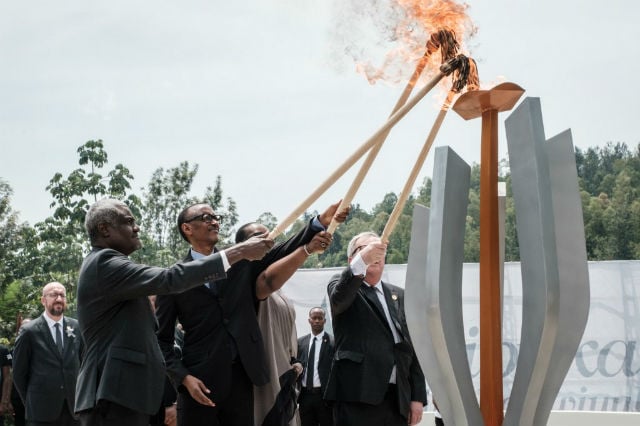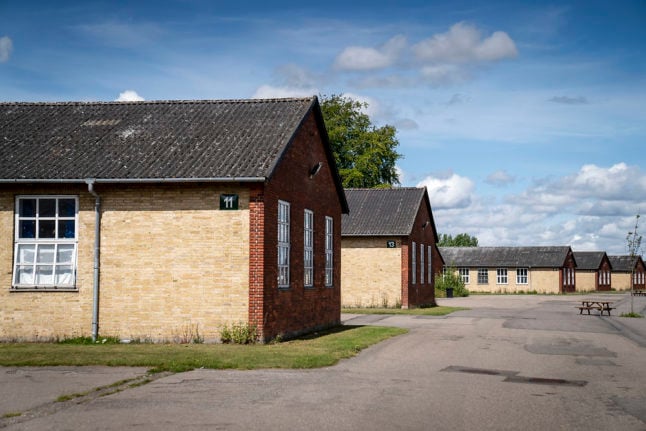- France upholds prison term for Rwanda genocide convict
- Rwanda accuses 22 French officers over 1994 genocide
- French general testifies in Rwanda massacre probe
RWANDA
Macron proposes day of commemoration for Rwanda genocide
French President Emmanuel Macron proposed an annual day of commemoration for the Rwanda genocide on Sunday as the African nation marked 25 years since the massacres of the minority Tutsi community.
Published: 7 April 2019 16:25 CEST

African Union chief Moussa Faki, Rwanda's President Paul Kagame and European Commission President Jean-Claude Juncker at 25th Commemoration of the 1994 Genocide in Kigali, Rwanda on April 7. Photo: Y
The French leader expressed his “solidarity with the Rwandan people and his compassion for the victims and their families” in a statement that proposed April 7 as an annual remembrance day in France.
Macron drew criticism from some activists for failing to attend the start of commemoration events in Rwanda on Sunday, instead sending a personal envoy, a Rwandan-born MP Herve Berville who was orphaned in the 1993 violence.
A Rwandan victims' group, Ibuka France, hailed Macron's announcement of a national Rwanda genocide day and said it had suggested the idea during a meeting with the 41-year-old leader last week.
“My reaction is one of satisfaction,” the head of the group, Marcel Kabanda, said before adding that he hoped France would now introspect more about its role in the massacres.
“It's not the French population fundamentally, but the political elite that needs to talk about it more. It will take time but it's a new phase,” he told AFP.
READ ALSO:
The genocide has cast a long shadow over Franco-Rwandan relations. Rwanda's current President Paul Kagame, a Tutsi, accuses France of having supported the ethnic Hutu forces behind most of the slaughter and of helping some of the perpetrators to escape.
On Friday, Macron announced the creation of a commission of historians and researchers that will delve into the French state's archives in a move intended to set the historical record straight.
Url copied to clipboard!


 Please whitelist us to continue reading.
Please whitelist us to continue reading.
Member comments